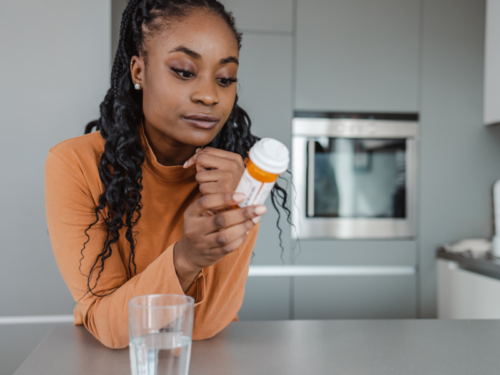Substance Use Disorder Treatment for Teens and Adults
Understanding the mental health roots of substance use disorders (SUD) is key to long-lasting recovery. Fill out the short form below, or give us a call, to start healing today with Charlie Health.
More than 91% of clients see improvements in their most severe mental health symptoms.
What are the main signs and symptoms of substance use disorders?
Like other mental health conditions, there are often telltale signs that someone is struggling with a SUD if you know what to look for. So how do you know if your consumption signifies a substance abuse problem? Below are several common signs of SUD:
- Changing friend groups to spend more time with those who drink or do drugs
- Missing class or skipping school
- Losing interest in activities you typically enjoy
- Changes in eating or sleeping patterns
- Changes in personal appearances, such as a lack of personal hygiene
- Growing disconnected from family and friends
- Engaging in suspicious and secretive behaviors
- Asking for money
- Mood swings or irritability
Understanding the presence and prevalence of these symptoms in an individual helps clinicians begin to diagnose them properly and start to build treatment programming that will best fit their needs.
How does Charlie Health treat SUD?
At Charlie Health, we start by listening to your story. From there, we create a treatment plan that’s tailored to your needs and goals. Whether that means an abstinence-based or harm-reduction approach, you’ll have weekly individual therapy, group sessions, and the option to add family therapy, psychiatric care, or medication-assisted treatment (MAT) if it’s right for you.
Beyond therapy, we also connect you with community resources and ongoing support so you don’t have to navigate recovery alone.

We proudly partner with many major insurance providers, including commercial, Medicaid, and TRICARE
What are the best types of therapy for SUD?
Cognitive behavioral therapy (CBT)
Cognitive-behavioral therapy (CBT) is a highly effective therapeutic modality for substance use disorders and their co-occurring mental health conditions, such as major depression and anxiety disorders.
Dialectical behavior therapy (DBT)
DBT helps clients manage triggers and cravings, cope with stress without substances, and improve communication while building skills that support lasting recovery.
Compassion-focused therapy (CFT)
CFT helps address the shame and self-criticism that often accompany substance use. By reducing shame and fostering self-compassion, CFT supports lasting change and strengthens recovery.
Acceptance and commitment therapy (ACT)
ACT helps you face cravings and difficult emotions, practice mindfulness, and commit to healthier actions that support recovery and a more meaningful life.
Motivational interviewing (MI)
MI helps clients explore their relationship with substances, strengthen motivation for change, and set recovery goals that align with their values and readiness.
How it works
Reach out
Call our Admissions Team 24/7 or fill out our quick online form to verify your insurance coverage and get started
Get matched
We’ll conduct a thorough assessment to create your personalized virtual treatment plan
Start healing
Meet your peers in groups and your primary therapist in as little as 24 hours
Mental health conditions associated with SUD
FAQs about substance use disorders
See All FAQsWhat is substance use disorder?
Substance use disorder (SUD) is a medical condition characterized by an uncontrollable urge to use substances despite harmful consequences. It affects a person’s brain and behavior, leading to an inability to control the use of drugs, alcohol, or other substances.
What are the main types of substance use disorder?
The main types of substance use disorder include alcohol use disorder, opioid use disorder, cannabis use disorder, stimulant use disorder, hallucinogen use disorder, and sedative, hypnotic, or anxiolytic use disorder.
Symptoms of substance use disorder
Symptoms of substance use disorder can include intense cravings for the substance, unsuccessful attempts to cut down or quit, significant time spent obtaining, using, or recovering from the substance, neglect of responsibilities, continued use despite knowing the harms, and experiencing withdrawal symptoms when not using the substance.
Is substance use disorder different for teens and adults?
Yes, substance use disorder can manifest differently in teens and adults. They may be more susceptible to peer pressure and risk-taking behaviors, and their brains are still developing, making them more vulnerable to the effects of substances. Additionally, the social and emotional challenges of adolescence can complicate their relationship with substance use.
How common is substance use disorder?
Substance use disorder is a prevalent condition, affecting millions of individuals worldwide. According to the National Survey on Drug Use and Health, approximately 20 million Americans aged 12 and older had a substance use disorder in the past year.


















